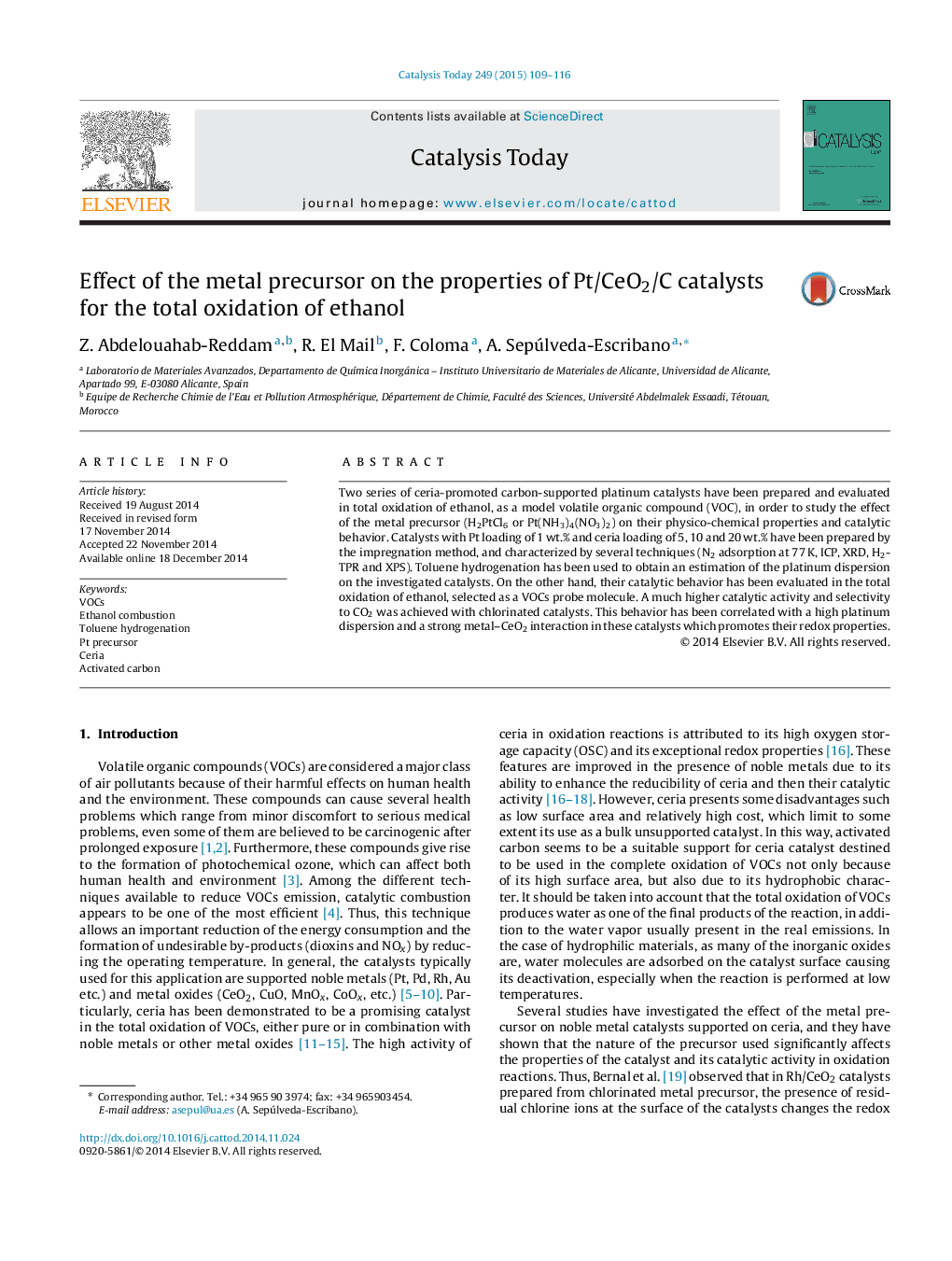| Article ID | Journal | Published Year | Pages | File Type |
|---|---|---|---|---|
| 53716 | Catalysis Today | 2015 | 8 Pages |
•Highly efficient catalysts for the complete oxidation of ethanol have been developed.•The use of CeO2 as promoter is optimized by dispersing it over the activated carbon surface.•Impact of the platinum precursor (chlorinated or Cl-free) on the catalytic activity.•Pt/CeO2/C catalysts are more active than Pt/CeO2.
Two series of ceria-promoted carbon-supported platinum catalysts have been prepared and evaluated in total oxidation of ethanol, as a model volatile organic compound (VOC), in order to study the effect of the metal precursor (H2PtCl6 or Pt(NH3)4(NO3)2) on their physico-chemical properties and catalytic behavior. Catalysts with Pt loading of 1 wt.% and ceria loading of 5, 10 and 20 wt.% have been prepared by the impregnation method, and characterized by several techniques (N2 adsorption at 77 K, ICP, XRD, H2-TPR and XPS). Toluene hydrogenation has been used to obtain an estimation of the platinum dispersion on the investigated catalysts. On the other hand, their catalytic behavior has been evaluated in the total oxidation of ethanol, selected as a VOCs probe molecule. A much higher catalytic activity and selectivity to CO2 was achieved with chlorinated catalysts. This behavior has been correlated with a high platinum dispersion and a strong metal–CeO2 interaction in these catalysts which promotes their redox properties.
Graphical abstractFigure optionsDownload full-size imageDownload high-quality image (171 K)Download as PowerPoint slide
